A new ultra-thin material created by scientists at Oxford University could revolutionize solar collection technology.


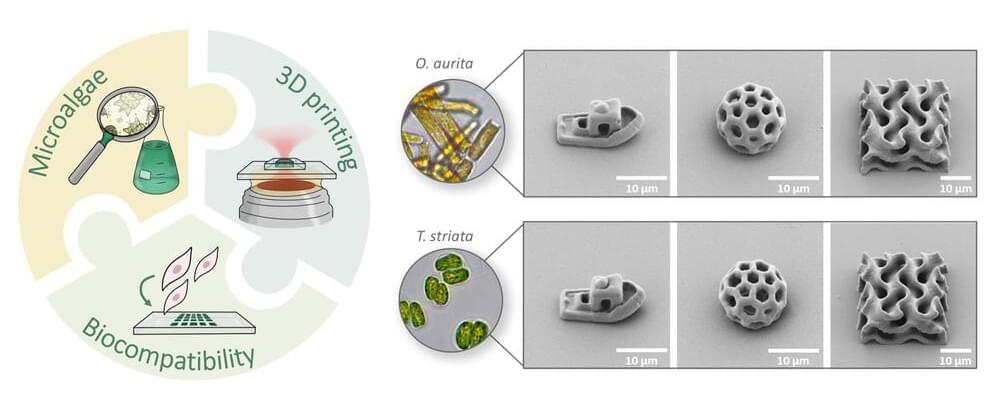
Microalgae such as the diatom Odontella aurita and the green alga Tetraselmis striata are especially suitable as “biofactories” for the production of sustainable materials for 3D laser printing due to their high content in lipids and photoactive pigments. An international research team led by Prof. Dr Eva Blasco, a scientist at the Institute for Molecular Systems Engineering and Advanced Materials (IMSEAM) of Heidelberg University, has succeeded for the first time in manufacturing inks for printing complex biocompatible 3D microstructures from the raw materials extracted from the microalgae. The microalgae-based materials could be used in future as the basis for implants or scaffolds for 3D cell cultures.
The research has been published in Advanced Materials (“Printing Green: Microalgae-Based Materials for 3D Printing with Light”).
A new ink system, based on the microalgae Odontella aurita and Tetraselmis striata, enables the manufacturing of complex 3D microstructures with high quality and precision. (Image: Clara Vazquez-Martel)
Using supercomputers and satellite imagery, the researchers showed our planet breathing.
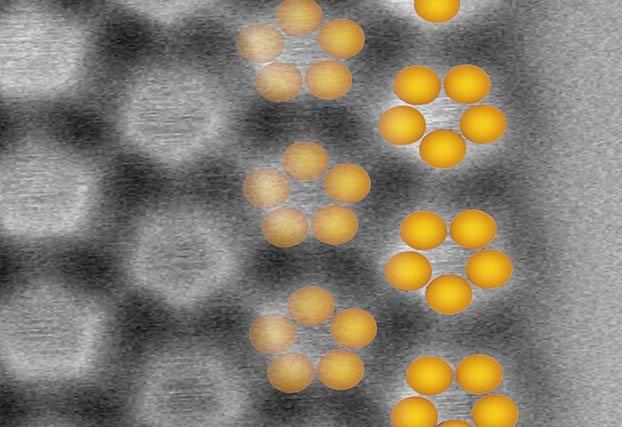
Phosphorus is an exciting element: It is essential for the survival of organisms and promises numerous electronic applications. With this in mind, researchers at the University of Basel have synthesized two-dimensional layers containing rings of five phosphorus atoms (phosphorus pentamers (cyclo-P5)) on a silver surface.
For the first time, they have been able to investigate their electronic properties using combined atomic force and scanning tunneling spectroscopy. They found that the atomic phosphorus pentamer layer retains its semiconductor properties and forms a special electronic interface where the layer joins the silver surface (p-type semiconductor-metal Schottky junction).
This shows that phosphorus pentamers on the silver surface fulfill a basic requirement for applications in field-effect transistors, diodes or solar cells, as recently reported by the research team in the scientific journal Nature Communications (“Probing charge redistribution at the interface of self-assembled cyclo-P5 pentamers on Ag(111)”).
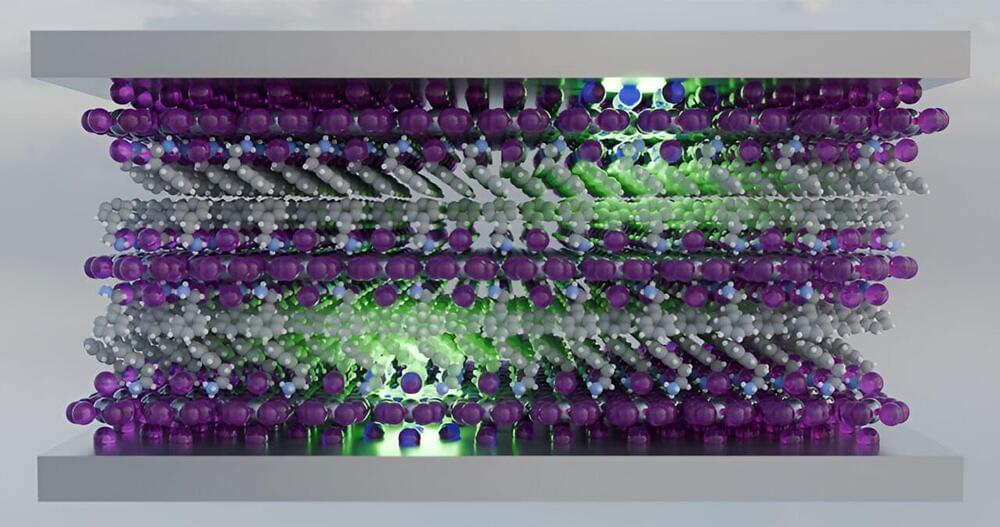
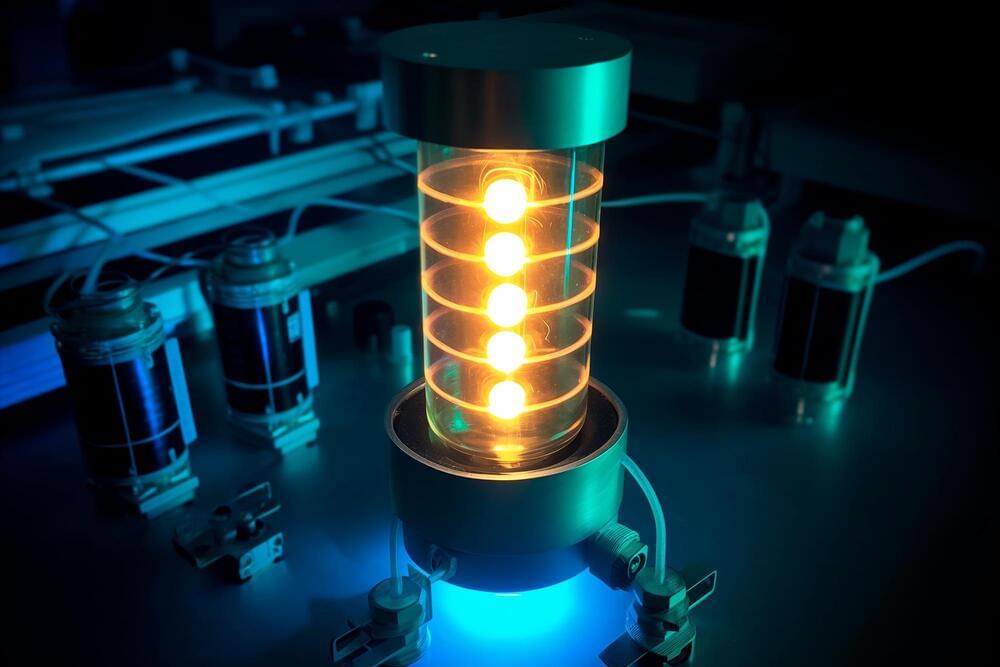
CU Boulder scientists have found how ions move in tiny pores, potentially improving energy storage in devices like supercapacitors. Their research updates Kirchhoff’s law, with significant implications for energy storage in vehicles and power grids.
Imagine if your dead laptop or phone could be charged in a minute, or if an electric car could be fully powered in just 10 minutes. While this isn’t possible yet, new research by a team of scientists at CU Boulder could potentially make these advances a reality.
Published in the Proceedings of the National Academy of Sciences, researchers in Ankur Gupta’s lab discovered how tiny charged particles, called ions, move within a complex network of minuscule pores. The breakthrough could lead to the development of more efficient energy storage devices, such as supercapacitors, said Gupta, an assistant professor of chemical and biological engineering.

“The moment when we wrote down the terms of this equation and saw that it all clicked together, it felt pretty incredible,” Wordsworth said. “It’s a result that finally shows us how directly the quantum mechanics links to the bigger picture.”
In some ways, he said, the calculation helps us understand climate change better than any computer model. “It just seems to be a fundamentally important thing to be able to say in a field that we can show from basic principles where everything comes from.”
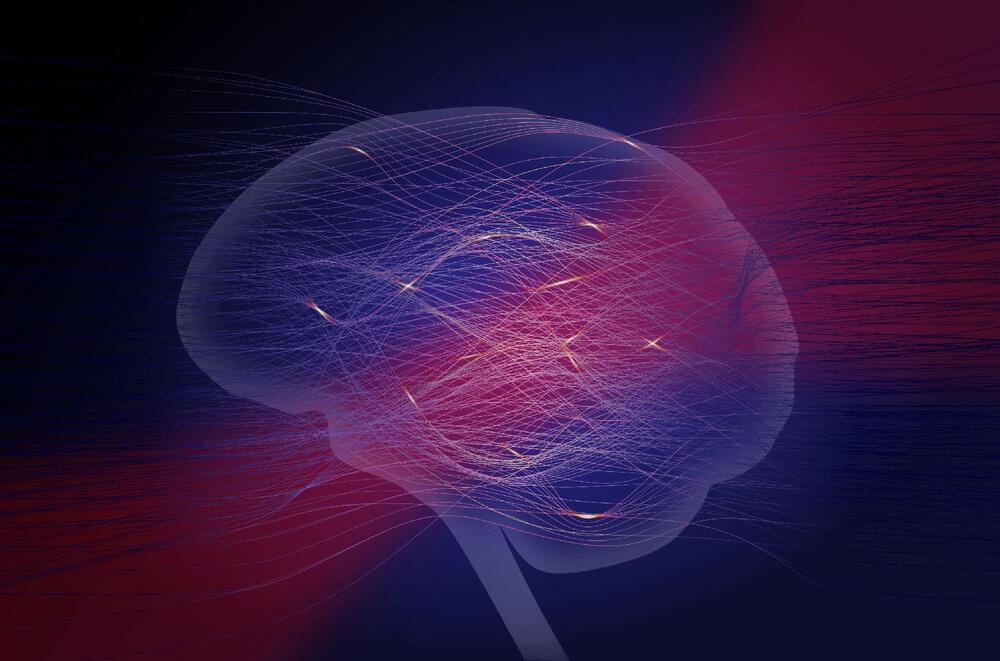
Scientists propose a new way of implementing a neural network with an optical system which could make machine learning more sustainable in the future. The researchers at the Max Planck Institute for the Science of Light have published their new method in Nature Physics, demonstrating a method much simpler than previous approaches.
Machine learning and artificial intelligence are becoming increasingly widespread with applications ranging from computer vision to text generation, as demonstrated by ChatGPT. However, these complex tasks require increasingly complex neural networks; some with many billion parameters. This rapid growth of neural network size has put the technologies on an unsustainable path due to their exponentially growing energy consumption and training times. For instance, it is estimated that training GPT-3 consumed more than 1,000 MWh of energy, which amounts to the daily electrical energy consumption of a small town. This trend has created a need for faster, more energy-and cost-efficient alternatives, sparking the rapidly developing field of neuromorphic computing. The aim of this field is to replace the neural networks on our digital computers with physical neural networks.

Even if we can dodge a disaster in orbit by responsibly de-orbiting derelict satellites, many scientists are concerned that the number of objects circling our planet could still do harm: When they deorbit, they could deposit a significant flux of metals that could alter the chemical makeup of Earth’s atmosphere.
“Effects on astronomy are just the tip of the iceberg,” said Barentine, who says we may be fast approaching a turning point where tragedy becomes imminent, either in space due to a collision or on the ground from falling debris. “Space policy-making moves far too slowly to effectively deal with all of this.”
“Right now, there’s not a lot to look forward to that is positive,” he added. “If the New Space Age goes badly in the end, history will not look favorably on it.”

Electronic waste, or e-waste, is a rapidly growing global problem, and it’s expected to worsen with the production of new kinds of flexible electronics for robotics, wearable devices, health monitors, and other new applications, including single-use devices.
A new kind of flexible substrate material developed at MIT, the University of Utah, and Meta has the potential to enable not only the recycling of materials and components at the end of a device’s useful life, but also the scalable manufacture of more complex multilayered circuits than existing substrates provide.
The development of this new material is described in the journal RSC Applied Polymers (“Photopatternable, Degradable, and Performant Polyimide Network Substrates for E-Waste Mitigation”), in a paper by MIT Professor Thomas J. Wallin, University of Utah Professor Chen Wang, and seven others.